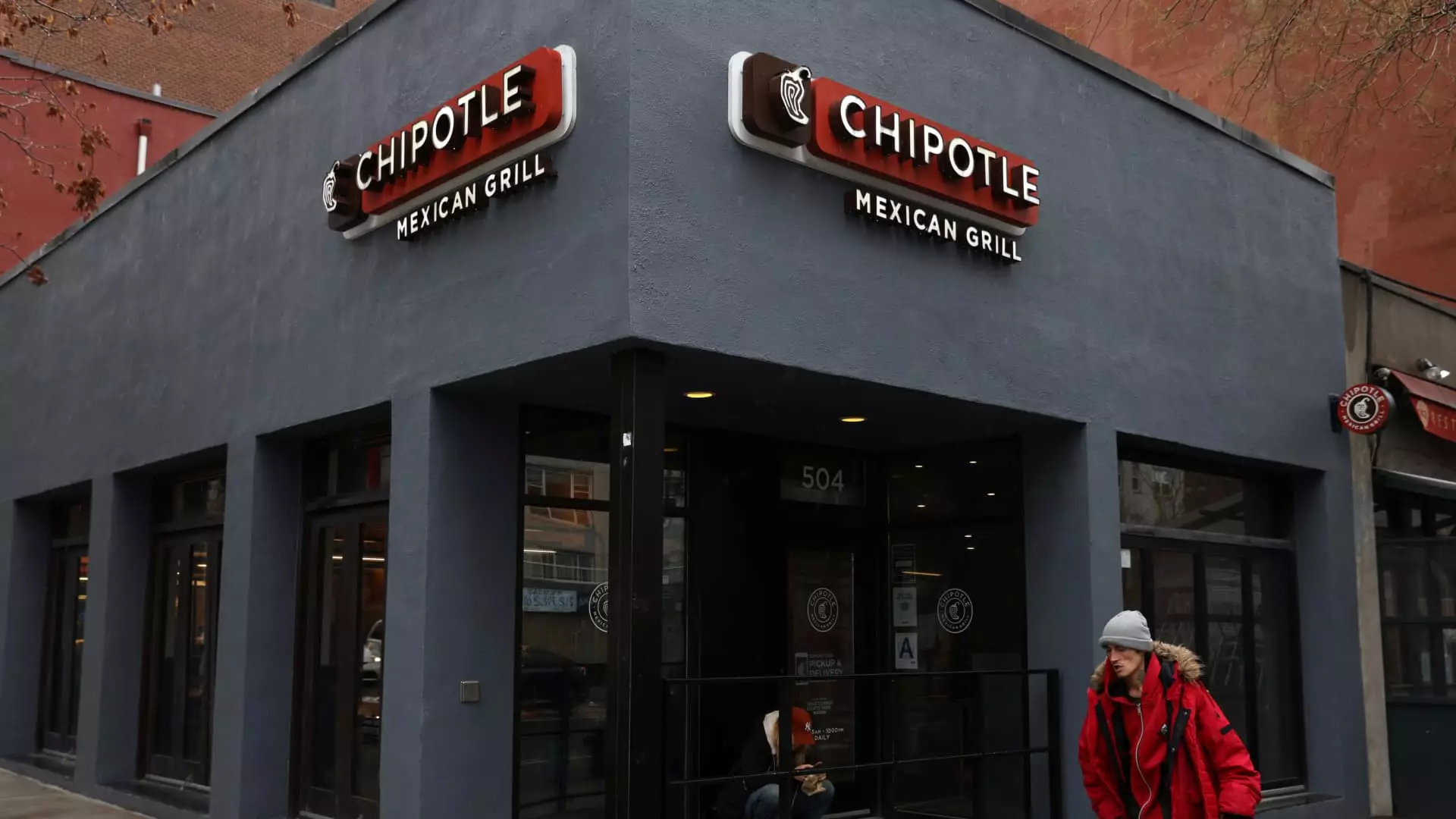Rubrik has recently made waves on Wall Street, witnessing a staggering 18.5% surge in its stock value. Crucially, the firm reported an adjusted loss that was significantly narrower than analysts had anticipated. This unexpected performance, with a loss of only 18 cents per share versus the 39 cents projected, underscores the company’s resilience in a challenging economic landscape. Additionally, their revenue of $258 million surpassed expectations, marking a commendable achievement in a sector often plagued by volatility. This performance signals not just a rebound but an affirmation of Rubrik’s strategic positioning within the data management industry.
Chipotle’s Navigational Strength
In a climate of constant economic flux, Chipotle Mexican Grill’s stock experienced modest growth, climbing roughly 2%. Following a ratings upgrade from Loop Capital, investors are re-evaluating their stances on the fast-casual giant. The advisory points to Chipotle’s ability to weather risks associated with tariffs introduced by former President Donald Trump. This highlights a critical aspect of investing; it’s not merely about the present, but how well a company can adapt to external pressures and uncertainties. Chipotle illustrates that a strong brand, coupled with sound risk management, can turn potential setbacks into opportunities.
Li Auto’s Contrasting Trajectory
However, not all companies are basking in the glow of investor optimism. Li Auto, a U.S.-listed electric vehicle manufacturer, saw its shares plummet nearly 6% following a report of declining net profits. While the company’s deliveries increased by 20%, suggesting operational resilience, price cuts have evidently undermined revenue. This conundrum underlines a pertinent truth about modern business: aggressive pricing can often occur at the expense of profitability. In a sector characterized by fierce competition and transformative technology, companies must strike a delicate balance between growth and financial gain.
Ulta Beauty’s Mixed Signals
Ulta Beauty, a retail powerhouse in the beauty sector, leapt 7% post a strong fourth-quarter performance, with earnings significantly surpassing analyst predictions. However, the promise of immediate rewards was coupled with an underwhelming forecast for the full year, which leads to a sobering discussion about market expectations. Investors appear divided, reveling in the quarterly triumph while grappling with the potential long-term implications of the company’s cautious outlook. It’s a classic case of short-term euphoria countered by long-term apprehension—one that investors must navigate with care.
DocuSign’s Resilience
In the tech realm, DocuSign’s stock surged over 9%, buoyed by results that outstripped market estimates in both earnings and revenue. Reporting adjusted earnings of 86 cents per share, they managed to exceed expectations, which is a testament to the efficiencies that have been cultivated within the business. The e-signature market might be crowded, but this performance shows that there’s still room for growth and competitive advantage in a space that some might consider saturated.
PagerDuty and Semtech’s Ascendance
PagerDuty’s impressive 4.8% increase following strong earnings and a proactive share repurchase program suggests that investors remain optimistic about the trending growth in data management solutions. Similarly, Semtech’s 12.1% jump is a clarion call to those in the semiconductor industry, indicating robust demand and favorable forecasts. Both companies seem to embody a broader trend of technology firms that can effectively adapt to shifts in market dynamics while also managing investor expectations with strategic foresight.
Overall, these movements reflect a dynamic and, at times, unpredictable market where both optimism and caution play vital roles in shaping investor sentiment moving forward.

